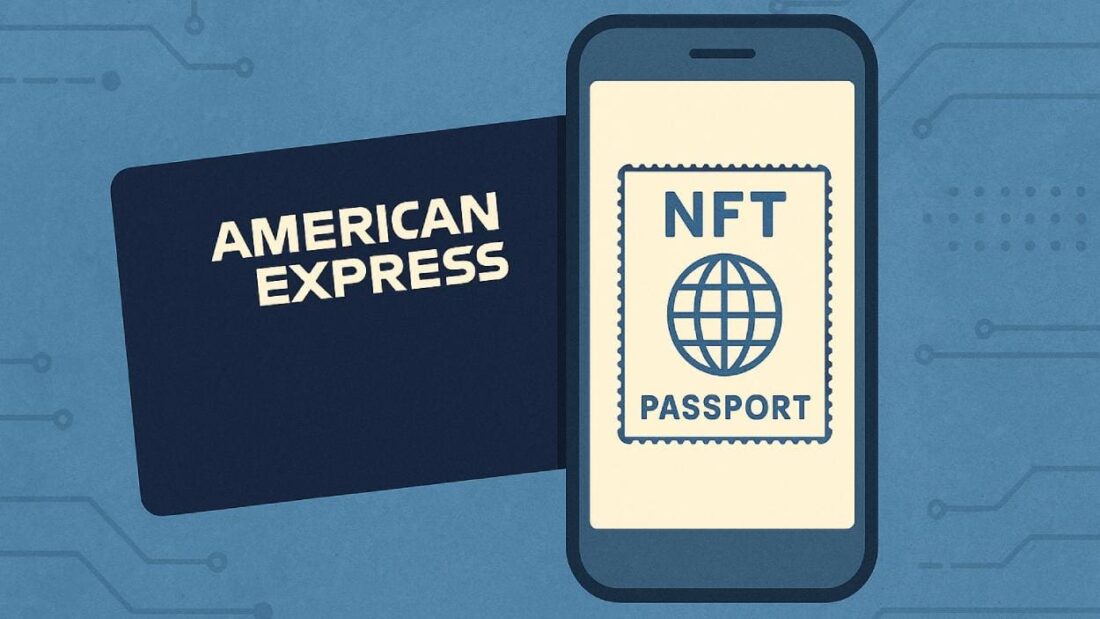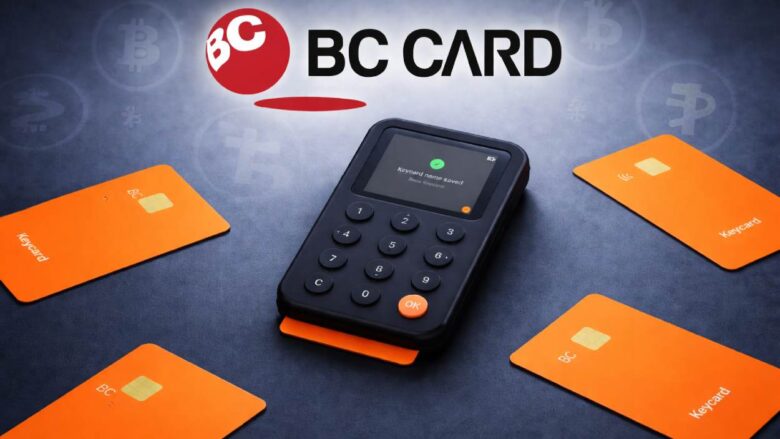American Express is offering a new way for cardholders to preserve their travel experiences with NFT-based digital stamps stored on the Ethereum Layer 2 Base network.
Key Takeaways
- American Express has launched Amex Passport, offering travel-themed NFTs as digital memorabilia for US cardholders.
- The stamps are non-transferable ERC-721 tokens, showing country, description, and date, without personal data attached.
- More than 20,000 stamps have already been issued, and eligible trips from up to two years ago can be retroactively added.
- This move reflects a broader shift in blockchain use, from speculation to customer experience and engagement tools.
What Happened?
American Express has unveiled a new feature called Amex Passport, allowing U.S. cardholders to receive blockchain-based travel stamps each time they make qualifying purchases abroad. These digital collectibles are issued as ERC-721 tokens on Coinbase’s Base network, giving users a modern, secure way to capture and cherish travel moments.
Amex is bringing digital “passport stamps” as Base NFTs to its mobile app: pic.twitter.com/XgXXrqjylh
— Blockworks (@Blockworks_) September 15, 2025
A Digital Spin on the Classic Passport Stamp
With physical passport stamps becoming less common, American Express has created a new way for travelers to relive their journeys. The Amex Passport program issues non-fungible token (NFT) stamps that mark the country or region visited, a brief description of the experience, and the date of travel. These stamps are accessible only through the Amex Travel app, and cannot be sold or transferred.
Amex Digital Labs Executive Vice President Luke Gebb explained, “As physical passport stamps continue to disappear, Amex Passport creates an opportunity for Card Members to celebrate their travels.” The move builds on a growing desire for digital travel mementos, with a recent Amex survey showing that 73 percent of travelers want more digital ways to commemorate trips, and 56 percent miss receiving physical passport stamps.
To earn a stamp, users must make an in-person purchase in one of 130 qualifying countries or regions using their linked US Amex card, either physically or via digital wallets like Apple Pay or Google Pay. Eligible past trips from up to two years ago are also automatically added, based on purchase history.
NFTs Designed for Sentiment, Not Speculation
American Express has been careful to position these digital stamps not as financial assets, but as keepsakes. Although each stamp is technically an ERC-721 NFT, they are intentionally not branded as NFTs within the user interface. This choice was made to avoid the speculative associations of NFTs and to focus on the emotional value of travel.
Each stamp remains private and cannot be traded, offering users a personal travel history that is securely stored on the blockchain. No personal trip details or data are made public on Base, and there are no additional fees for using the Amex Passport feature.
As of mid-September, more than 20,000 travel stamps have been issued, according to data from Base’s block explorer. The smart contract powering the feature was deployed about 25 days prior to the announcement.
Broader Trend of Blockchain in Tourism
The initiative fits within a growing trend of using blockchain for travel and tourism, where companies are moving beyond speculative NFTs and embracing utility-driven digital collectibles. In 2023, Lufthansa launched a similar NFT-based travel program on polygon. South Korea’s Jeju Island is planning to roll out an NFT tourism resident card in 2025, offering travel subsidies and local perks.
In the U.S., even federal agencies are exploring blockchain use. The Department of Commerce recently announced plans to publish economic data on blockchain, further validating the technology’s transparency and security benefits.
American Express itself is deepening its crypto partnerships. Earlier this year, Coinbase announced a Bitcoin rewards card in collaboration with Amex, scheduled for release this fall. The card will offer up to 4 percent back in Bitcoin based on the user’s crypto holdings.
CoinLaw’s Takeaway
I love seeing big names like American Express using blockchain for something other than trading or speculation. In my experience, the crypto space often struggles with public perception because it focuses too much on financial upside and not enough on real-world usefulness. This is a refreshing example of blockchain adding sentimental value, not just monetary value.
What stands out here is that Amex didn’t even call these “NFTs” in the app, which shows they’re thinking about user experience first. I found that especially smart. It makes the tech invisible, which is often the best kind of innovation. This isn’t about hype. It’s about turning travel into a personal story that lasts.



































































